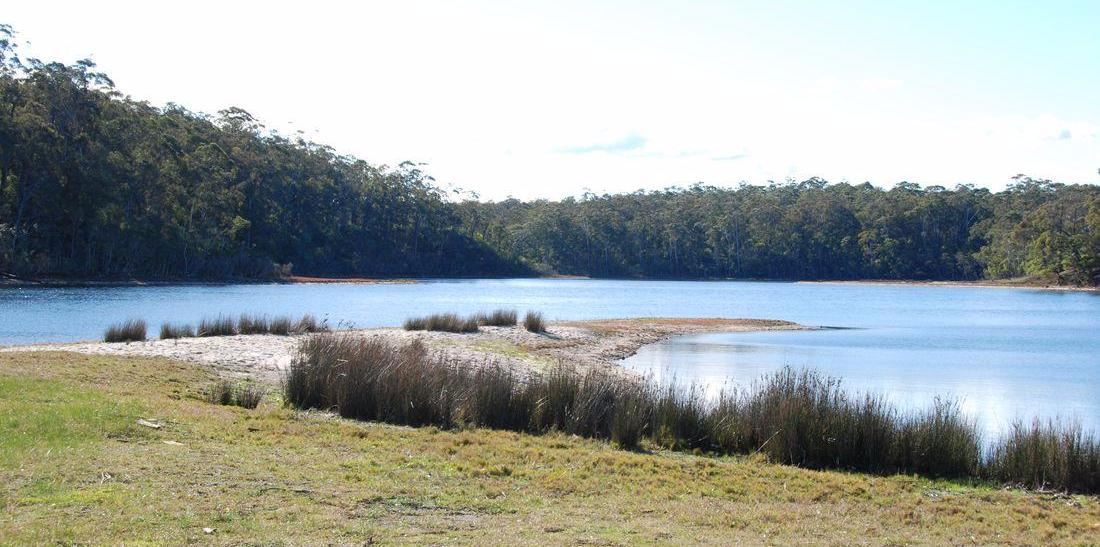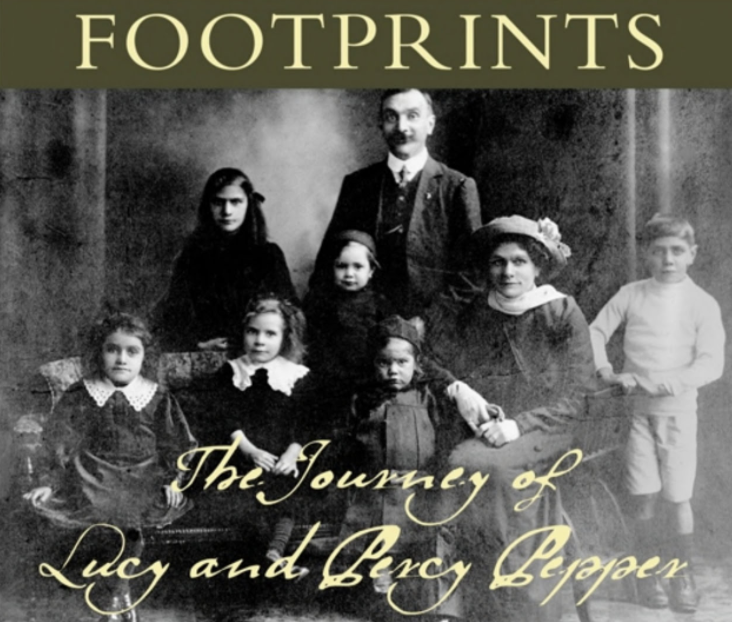A respected Elder who built bridges between generations
Article source: Aboriginal Victoria
Aunty Rita Watkins did not seek accolades for her many years of dedicated work for her community. Throughout her life she overcame her natural shyness to speak out on behalf of others and reclaim community and family history for the benefit of future generations.
A Gunai Elder, Aunty Rita was born at Lake Tyers, the first of 8 children to Gwendoline (nee Pepper) and Lesley Hudson. Although the family lived in Bairnsdale, Aunty Rita's mother Gwendoline chose to return to her family home at Lake Tyers where her aunt, Julia Thorpe, who was a skilled midwife, could assist with Aunty Rita’s birth.
Early years
Aunty Rita's early years were spent in Gippsland, in close contact with cousins, aunties and uncles. She had fond memories of accompanying the adults as they picked beans or peas to supplement the family income. The children were settled on a rug with a picnic and told firmly not to wander or touch the plants while their aunties went about their work.
As well as their own children, Aunty Rita's parents cared for one of her young cousins, who was in danger of being removed from the family by the welfare authorities. They moved from place to place, often leaving in the middle of the night to avoid being found. The authorities eventually caught up with the family and took the child away. Aunty Rita's cousin was not able to reconnect with his family until he was an adult, many years later.
Aunty Rita's mother eventually settled the family in Gertrude Street, Fitzroy, where other Pepper family members, including Aunty Rita's grandfather, had made a home. Money was in short supply and Aunty Rita left school at the age of 10 to help her mother support the younger children. She tried to continue her education by buying and reading second hand books and keeping notebooks in which she would 'scribble' thoughts, verses and ideas.


A strong sense of community
Aunty Rita recalled the strong sense of community that developed in Aboriginal Fitzroy during the 1940s and 1950s. Her family regularly attended Pastor Doug Nicholls' church in Gore Street and met other Aboriginal families and friends at informal picnics in the Fitzroy Gardens on Sunday afternoons.
She recalled that the Elders were strict, keeping a close eye on the movements of young men and women. Though times were very tough, Aunty Rita remembered her mother regularly opening her home to those in need of accommodation, including young men who travelled down from country communities to play football in the city.
Swept off her feet by Tommy
A neighbour introduced Aunty Rita to the art of ballroom dancing and escorted her to dance studios in Melbourne, where her skills quickly earned her a job as a dance teacher and demonstrator. It was at a dance studio in Bourke Street Melbourne that Aunty Rita met her future husband, Tommy Watkins.
She was so shy she declined his first invitation to go out for lemonade.
Aunty Rita remembered her shock when Tommy first called at her home to take her to a dance. He was the first person she knew who actually owned a car.
After they were married, Aunty Rita and Tommy moved to Healesville where Tommy opened a hairdressing salon. There they raised 3 children, Glenys, Wayne and Gary. Despite her natural shyness, Aunty Rita followed her mother's example of helping those in need. When she discovered that Aboriginal children at the local school were taunted with racist names, she confronted the offenders and made them apologise.
Victorian Aboriginal Health Service
A community-minded person, Aunty Rita trained in emergency response with the Red Cross and earned an award for her outstanding service. As her children grew older, she became involved with the Victorian Aboriginal Health Service (VAHS). Established in Fitzroy in 1973, VAHS was the first Aboriginal community-controlled health service in the state.
At VAHS, she helped the organisation with book work and trained as an Aboriginal community health worker at Koorie Kollij. Aunty Rita also recalled helping to provide bathing facilities for the 'parkies' – the name given to homeless Aboriginal people who gathered in the park on Gertrude Street in Fitzroy.
Aunty Rita also spoke out against discriminatory practices when she saw them; advocating for Aboriginal patients and reassuring children that someone in the hospital was from 'their mob'
As one of the early Aboriginal Liaison Officers at the Royal Children's Hospital, Aunty Rita also spoke out against discriminatory practices when she saw them; advocating for Aboriginal patients and reassuring children that someone in the hospital was from 'their mob'. Aunty Rita later moved back to her home town of Bairnsdale where she worked as one of the first managers of the Aboriginal Elders Hostel.
Native Title over Gunaikurnai traditional land
Aunty Rita was among a small group of Gunaikurnai Elders who worked to achieve Native Title over Gunaikurnai traditional land in Gippsland, a long and difficult process. When the Federal Court of Australia recognised the Gunaikurnai claims on 22 October 2010 and the Victorian Government entered into an agreement with the Gunaikurnai under the Victorian Traditional Owner Settlement Act, Aunty Rita spoke at the formal ceremony marking the historic occasion. She went on to serve on the Gunaikurnai Elders' Council and designed the logo for the Gunaikurnai Land and Waters Association Registered Aboriginal Party.


Footprints: The Journey of Lucy and Percy Pepper
Aunty Rita's concern that Aboriginal people should know their own history led her to collaborate with the Public Record Office Victoria and the National Archives of Australia to publish groundbreaking book and touring exhibition. Footprints: The Journey of Lucy and Percy Pepper was based on the lives of her grandparents and their family. The book and exhibition used family and government records to demonstrate how Aboriginal families can survive and care for each other no matter what obstacles are placed in their way.
A modest woman, Aunty Rita considered herself to be just an ordinary person. Her achievements, however, tell a different story. They reveal a tireless campaigner for fairness and equality with a life-long commitment to her people and community.
